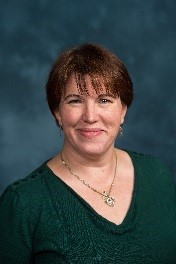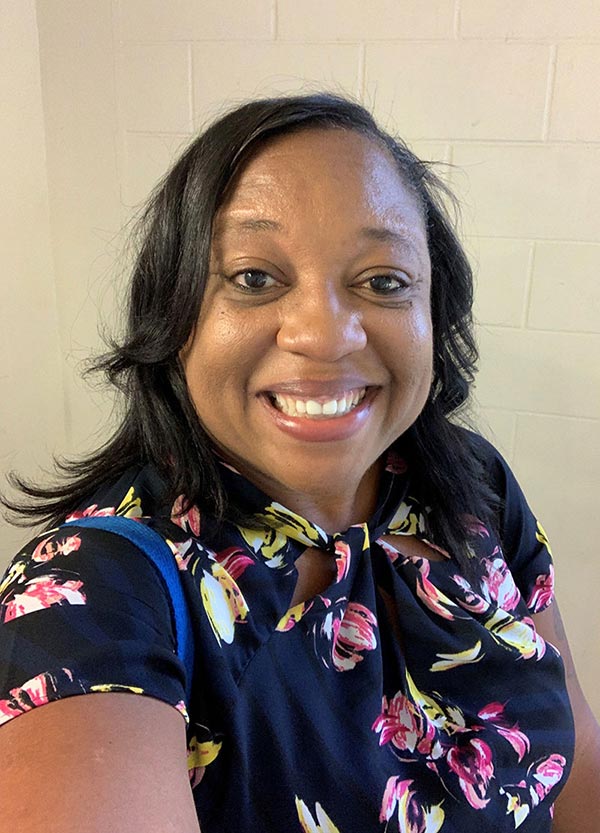Center for Disability Health & Wellness receives $5 million grant to advance health outcomes for people with disabilities in marginalized communities
This project is a direct extension of efforts already underway at the CDHW. Project directors hope the grant will help bring about meaningful change in clinical, research, and community settings.
The Center for Disability Health and Wellness (CDHW) at the University of Michigan (U-M), has been awarded a five-year, $5 million grant dedicated to enhancing the health and functioning of individuals with physical, cognitive, sensory, and developmental disabilities from marginalized and underserved communities. The grant, funded by the National Institute on Disability, Independent Living, and Rehabilitation Research (NIDILRR), will examine and begin to address systemic issues in health care that negatively affect people with disability with intersecting identities, who are more likely to experience compounding inequities, discrimination, and health disparities.

It is estimated that 1 in every 4 people in the United States have a disability, yet health care remains largely inaccessible and inequitable for them. This is despite nearly 50 years of implementation of various civil rights laws protecting people with disabilities, from Section 504 of the Rehabilitation Act of 1973 to the 2010 Patient Protection and Affordable Care Act. People with disabilities continue to struggle with inaccessible care, communication breakdowns, inadequate accommodations, and lack of specialized training on the part of their treating clinicians.
While significant health inequities exist for people with disabilities, disability information is not routinely available in data sets used to assess health care experiences and disparities. This lack of data becomes even more pronounced when considering people with disabilities as individuals with multiple overlapping identities, or intersectionality. People with disabilities who are members of marginalized, disadvantaged, or otherwise minority populations are severely underserved, despite a belief that they experience worse health outcomes, which could be in part attributable to attitudinal biases and structural discrimination (such as ableism combined with structural racism).

Members of the CDHW recognize these issues as systemic failures, or resulting in large part from the structures, policies, training, systems, and procedures that are created and perpetuated in health care systems. Therefore, they developed a proposal for a Rehabilitation Research and Training Center (RRTC) on Equity in Health and Functioning that would allow them to focus on health care systems and offer realistic, concrete solutions. The center is comprised of a diverse team of researchers, clinicians, and technical experts from throughout the University of Michigan and in collaboration with partner institutions and organizations, each with knowledge of different clinical environments and different patient populations. This unique combination of expertise and training enables the group to focus on people with physical, cognitive, sensory, and developmental disabilities from marginalized communities and offer a synergistic combination of research projects, training, and knowledge translation activities.
The funding of this Center grant allows the CDHW to formally connect faculty members from the University of Michigan Departments of Physical Medicine and Rehabilitation and Family Medicine with colleagues in the Departments of Ophthalmology and Obstetrics and Gynecology as well as in the School of Pharmacy and Institute of Social Research (ISR) with colleagues at collaborating institutions and organizations including the Michigan Disability Rights Coalition (MDRC), the University of Central Florida, Augusta University, and the Center for Healthcare Research and Transformation (CHRT).

The RRTC is a direct extension of existing efforts already underway at the CDHW, including the IDEAL RRTC - Investigating Disability factors and promoting Environmental Access for healthy Living Rehabilitation Research and Training Center and the 2020 Accelerating Synergy grant award from the Michigan Institute for Clinical and Health Research (MICHR), and reflects the mission and vision of the center. The CDHW aims to ensure access to quality health care personalized to all backgrounds, strengths, and needs.
CDHW Co-Directors Michelle Meade, Ph.D. and Michael McKee, MD, MPH are principal investigators of the new RRTC, which will be housed at U-M. Reshawna Chapple, Ph.D., MSW, LCSW, associate professor in the School of Social Work at the University of Central Florida, will serve as the co-principal investigator with McKee and Meade and will oversee training and integration of concepts of cultural relevance, cultural competency and social justice in all Center activities. All research projects as well as training and knowledge translation activities will also be informed and implemented in collaboration with our partners at the MDRC and an advisory panel consisting of representatives of disability organizations from southeastern Michigan.
“This critical grant will help our researchers and collaborators raise awareness around the health disparities encountered by people with disabilities from marginalized communities who have historically been overlooked and underserved by the current health care system. It would not have been possible without the support of MICHR, IHPI [Institute for Healthcare Policy and Innovation], and the Michigan Medicine Executive Committee as well as the practical assistance provided by the U-M Department of Physical Medicine and Rehabilitation. We are looking to bring about meaningful change in clinical, research, and community settings.” Meade said.
Planned activities include:
- The creation of a dashboard allowing researchers to conduct annual analyses and reviews of publicly accessible national surveys to examine and visualize rates of health care disparities among individuals with disabilities in the United States. (Led by Meade with Co-Director Elham Mahmoudi, PhD. Collaborators include co-investigators Diane Harper, MD, Joshua Ehrlich, MD, MPH, Susan Ernst, MD, Margaret Takako Hicken, PhD, and Katharine Seagly, PhD.)
- Examination of the relationship of social determinants of health and health utilization among Medicare- and Medicaid-enrolled people with intellectual and developmental disabilities. (Led by Biplab Datta, PhD of Augusta University in collaboration with co-investigator Mark Peterson, PhD).
- A study of HIV prevention and risk behaviors among individuals with disabilities, including accessibility of community-based HIV testing programs. (Led by Tyler James, PhD, MCHES)
- An integrative team-based program in primary care designed to address virtual health care access and medication safety and quality for patients with intellectual and developmental disabilities. (Led by McKee and Steven Erickson, PharmD, with co-investigator Lorraine Buis, PhD.)
- The development of an equity tool and implementation process targeted at health care systems that will operationalize, report, and encourage those systems to enhance health outcomes for individuals with disabilities. (Led by Meade with collaborators Patricia Anderson, MLIS and Lisa Meeks, PhD)
- Significant training and capacity building activities are included to enhance the knowledge and skills of medical residents and other health care providers to appropriately treat patients with disabilities from marginalized communities as well as to enhance opportunities for graduate students and junior faculty members from marginalized backgrounds to gain experience and mentorship in rehabilitation research.
“Investing in this research will advance efforts to enhance the lives of all adults living with disabilities, especially those from communities facing heightened rates of poor health and wellness outcomes,” said McKee. “Thanks to our continued partnership with the CDHW, we have built an incredible team of disability health researchers, clinicians, technical experts, and community liaisons to ensure that our findings are grounded in the realities faced every day by patients with disabilities while helping us move forward to achieving true equity for these individuals.”
Project title:
The Rehabilitation Research and Training Center (RRTC) on Equity in Health and Functioning for Adults With Physical, Cognitive, Sensory, and Developmental Disabilities from Marginalized Communities
